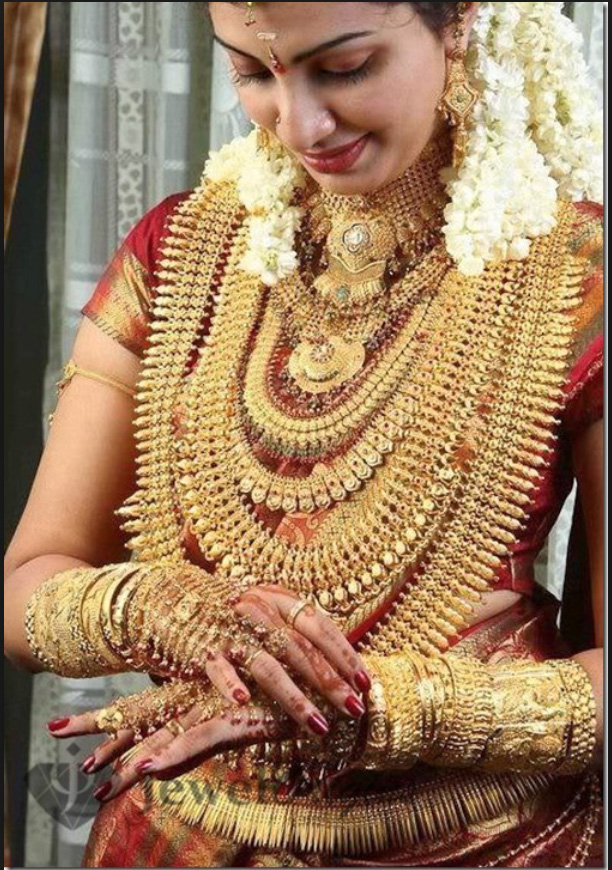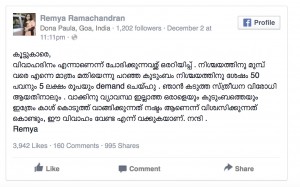
Bride cancels her wedding due to intense dowry demand


Remya Ramachandran, from Thrissur, Kerala, India posted in Facebook an remarkable announcement that she is calling of her marriage due to intense demand for dowry from her groom’s family, which started soon after her engagement.
Remya wrote “ To all those asking for the date of my wedding, the family that before the engagement had said that they only wanted me, but post engagement, they are demanding 50 sovereigns of gold £5000 ( Rs 5 lakh)”. As I am staunchly against dowry and because I believe that buying anything for a man and his family who are unreliable is a loss, I don’t want to continue with the marriage”.
Her post soon went viral on social media with numerous congratulatory messages praising her decision as “perfect decision”. Let this encourage other women too. Remya thanked everyone who supported her in social media and said “ I juz wanted to let my circle know about cancellation of marriage, never expected this to break. Meanwhile I would like to explain that the decision was my declaration. Never had any intention to hurt anyone specifically. Please do not use my post as personal humiliation, instead use it against our social norms. People are ignorant for their own convenience and profit. Thank you once again.”
In India , demanding dowry is strictly prohibited by law under the Dowry Prohibition Act 1961, but despite that the system is still very much prevalent. Many Indian bride’s family give dowry to grooms and their families for fear of not finding a match for their daughter and social shame associated with it. Most brides in Kerala wear 100 tolas of gold or extra cash, flat or new car in return for security for our girl at husband’s home. Greed for money is the main the reason.
The dowry buys into people’s desire and pride to “save face” and system has substantial consequences for women in general. It wasn’t until later, when women’s rights groups were campaigning strongly against dowries and former Indian Prime Minister Indira Gandhi organized the marriage of her son without accepting a dowry from the bride’s parents that the public really took notice, leading to an amendment of the Anti-dowry Act in 1989 and public enforcement of the law in India. The Indian government created an 300 strong all –female police taskforce in 1993, for the sole purpose of investigating dowry dispute related abuse or deaths. In recent times, social media both Twitter and Facebook has played an important role with many blogs solely devoted to providing information and possible solutions.


